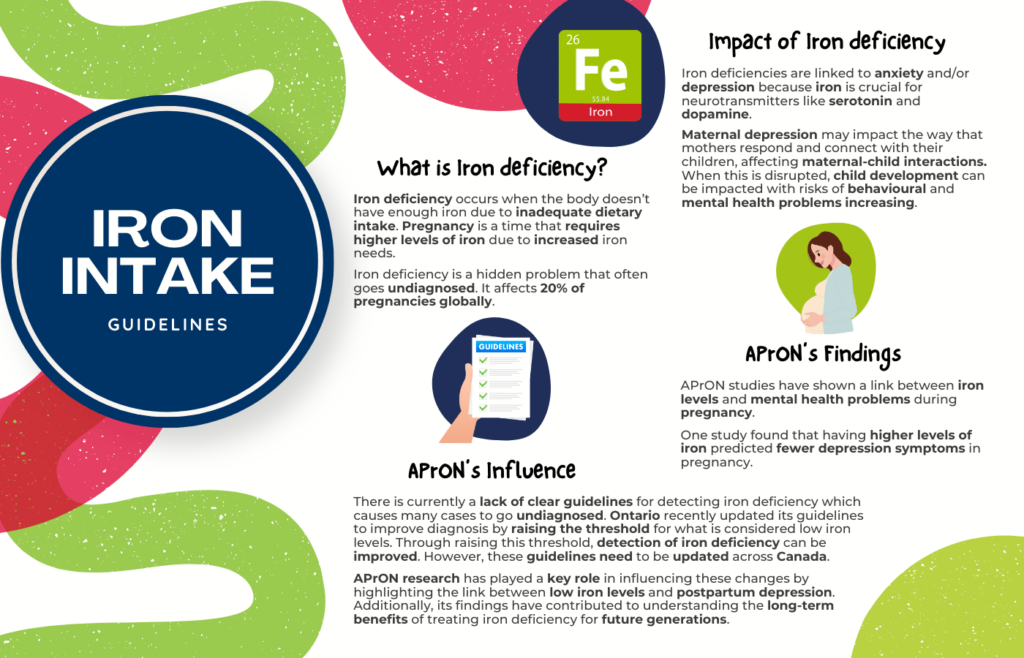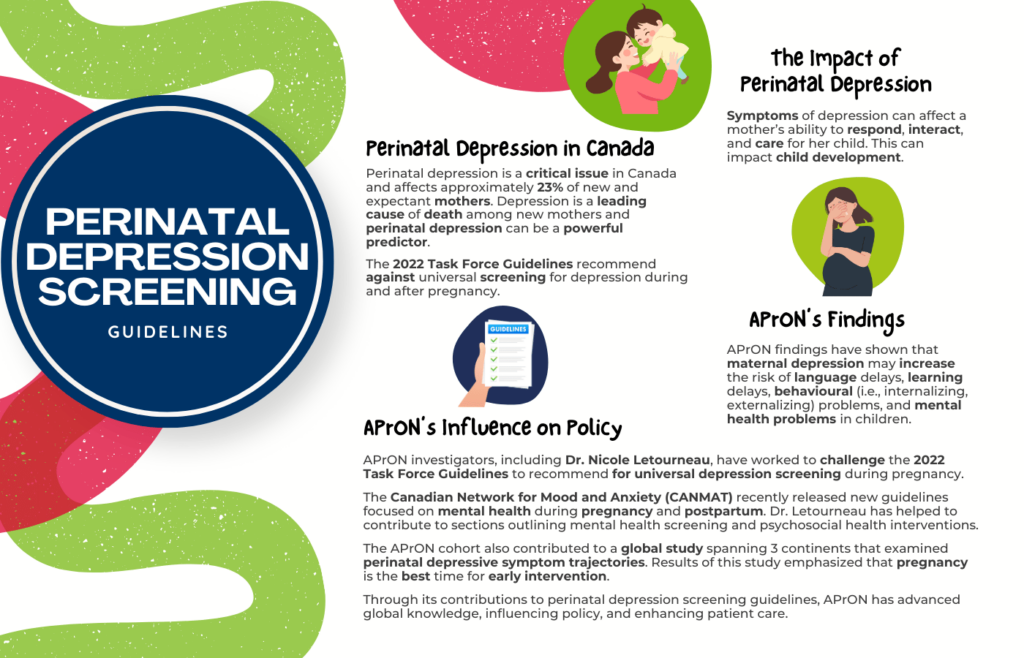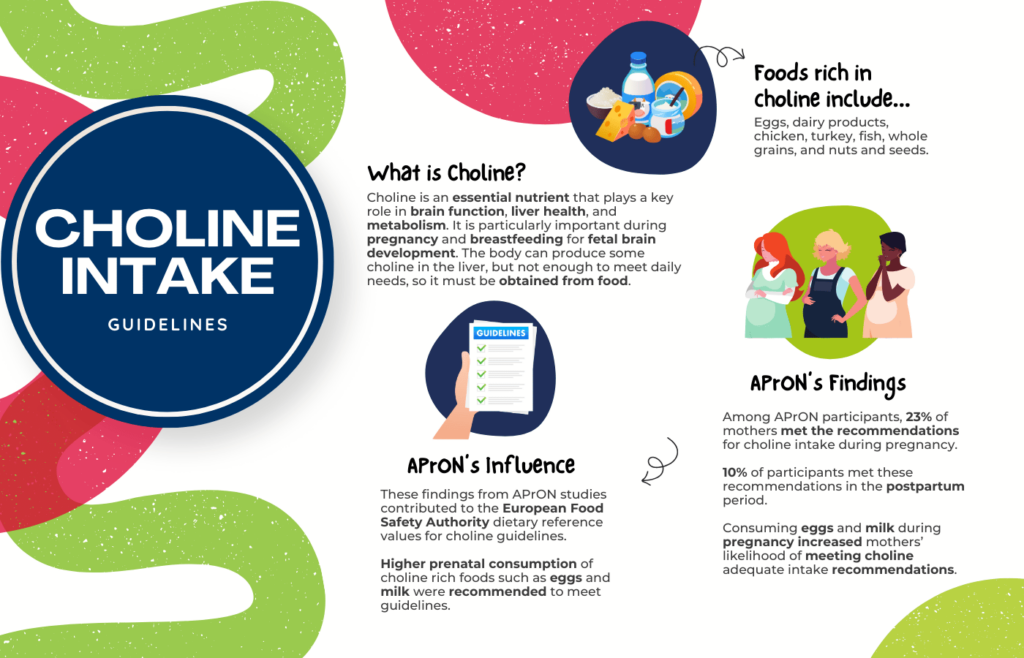APrON research has played a key role in shaping national and global policies and guidelines that enhance maternal and child health. Its findings have informed updates to iron and choline intake recommendations during pregnancy and advanced best practices for perinatal depression screening.
Iron Intake Guidelines
APrON studies have identified a link between iron levels and mental health challenges during pregnancy. These findings were instrumental in shaping updated iron guidelines in Ontario, leading to improved diagnosis of iron deficiency.
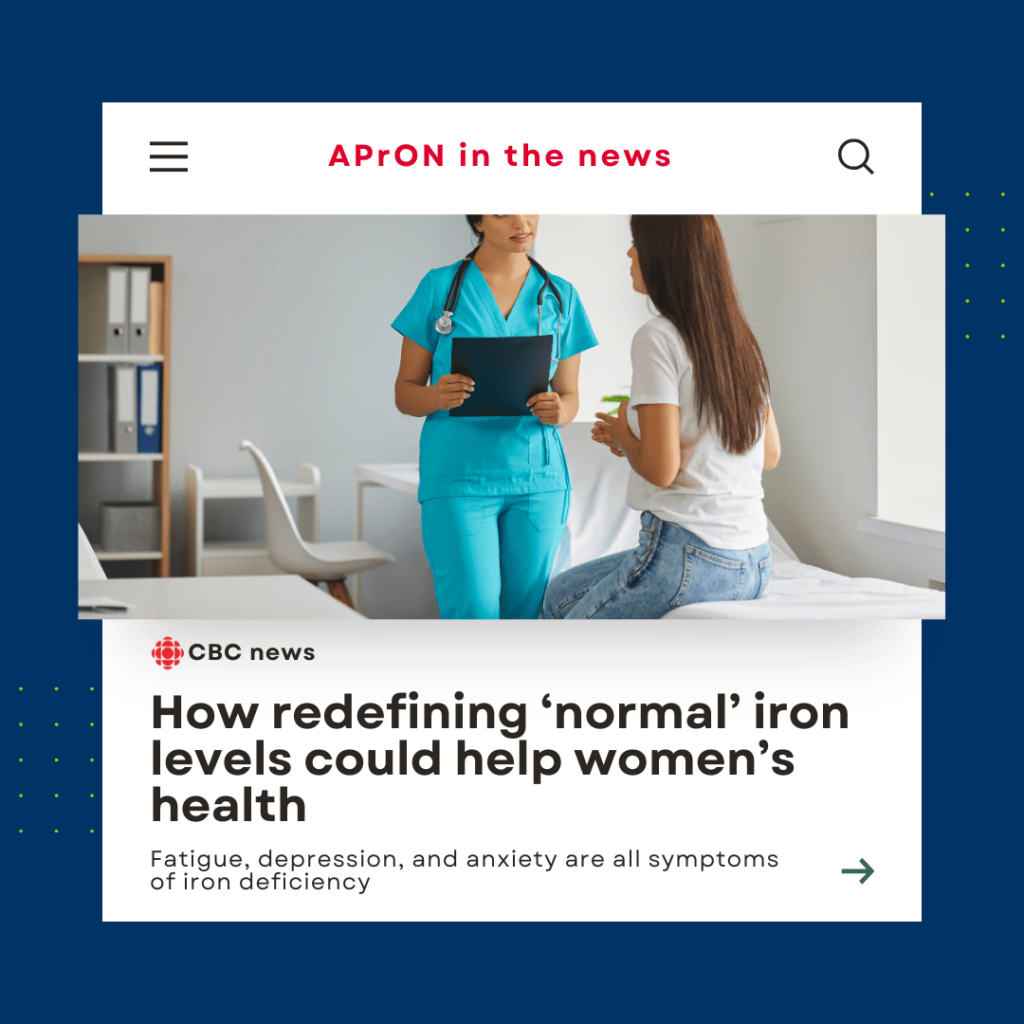
APrON study research has shown how low iron can be a predictor of postpartum depression. Not only can treating iron deficiency improve the health and well-being of mothers, but it can also improve downstream child outcomes.
Perinatal Depression Screening
APrON research has shown that maternal depression can affect children’s language development, learning, and behaviour. Dr. Nicole Letourneau has been a prominent advocate, challenging existing screening guidelines and contributing to the development of improved protocols for screening for depression during pregnancy.
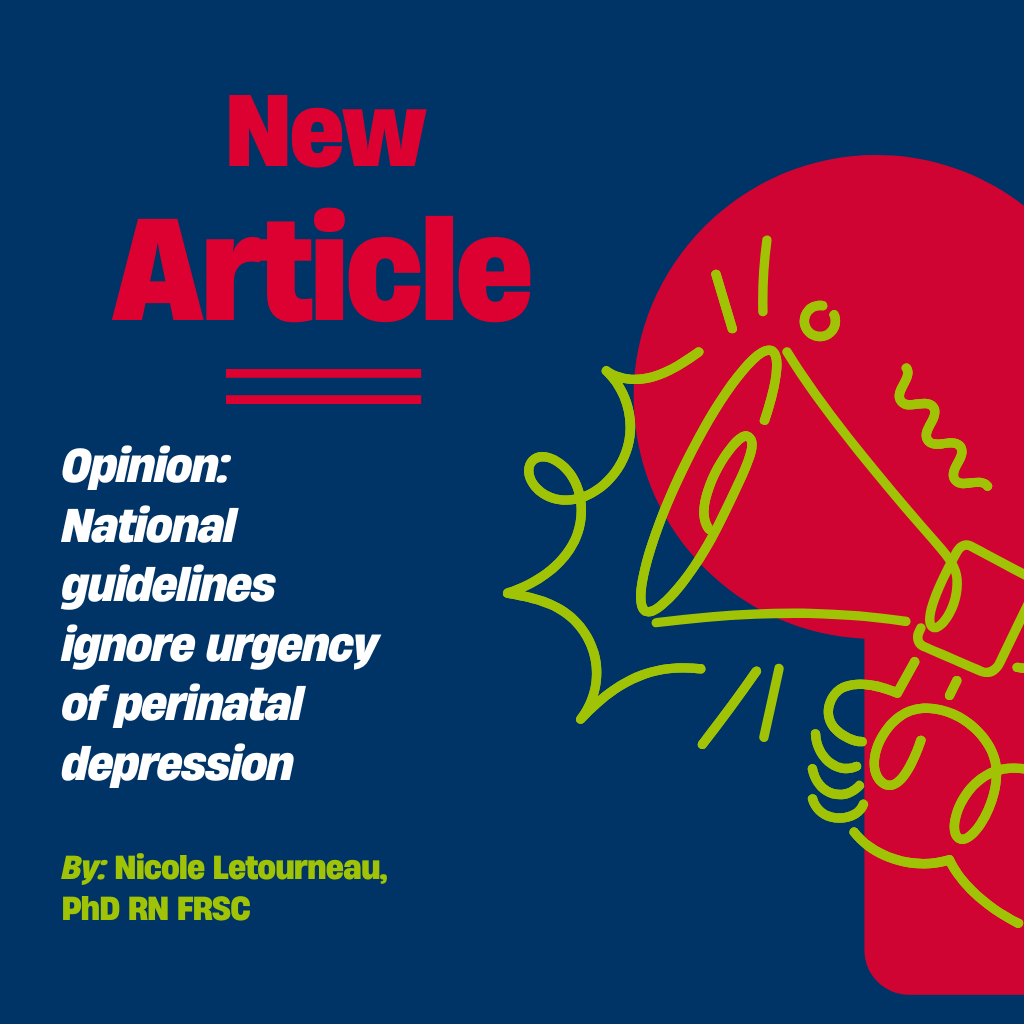
An opinion article by Dr. Nicole Letourneau calls for the Canadian Task Force to revisit its guidelines on perinatal depression screening.
Despite its impact, current guidelines advise against universal screening.
Dr. Letourneau argues it’s time to re-evaluate these guidelines to better support mothers and families.
The Canadian Network for Mood and Anxiety Treatments (CANMAT) has released new guidelines on perinatal mental health care.
Dr. Nicole Letourneau collaborated with a diverse team of experts and individuals with lived experience to contribute to the sections on psychosocial health interventions and mental health screening.
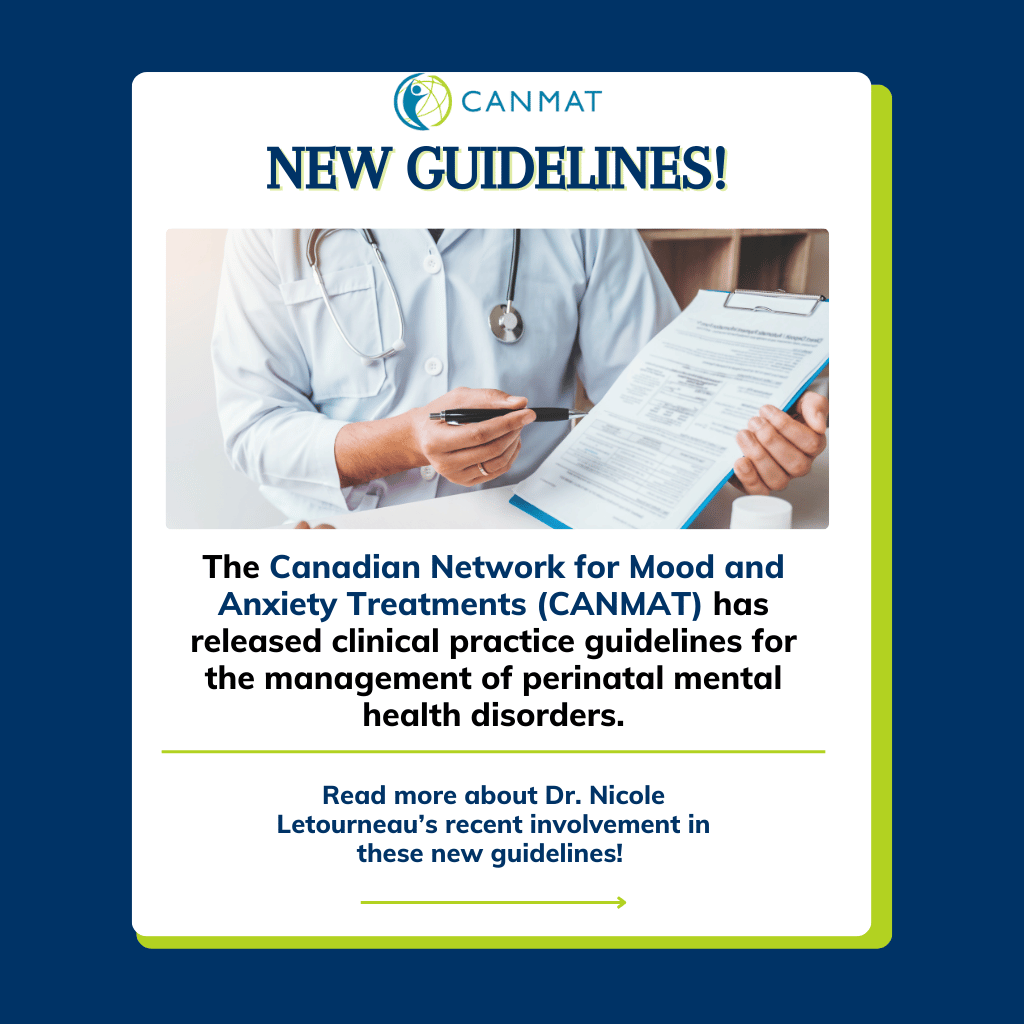
Choline Intake Guidelines
APrON findings have shown that consuming eggs and milk during pregnancy increased mothers’ likelihood of meeting choline adequate intake recommendations. These findings have contributed to the European Food Safety Authority dietary reference values for choline.

